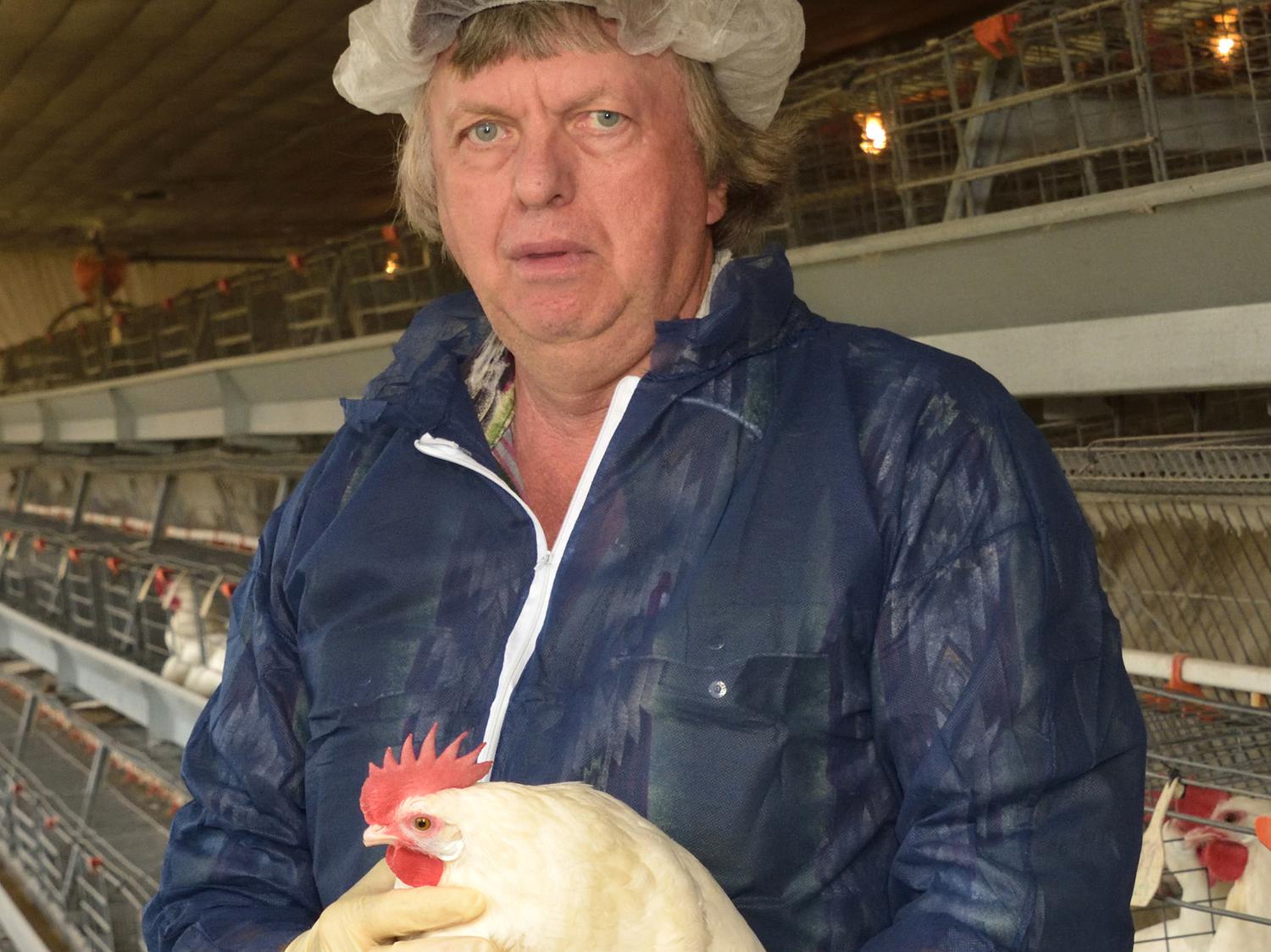Information Possibly Outdated
The information presented on this page was originally released on May 15, 2015. It may not be outdated, but please search our site for more current information. If you plan to quote or reference this information in a publication, please check with the Extension specialist or author before proceeding.
State's poultry farms intensify biosecurity
STARKVILLE, Miss. -- Mississippi poultry farms remained free of avian influenza as of May 15, and growers are intensifying existing biosecurity measures to keep flocks safe.
Mark Leggett, president of the Mississippi Poultry Association, said growers and companies are working together on biosecurity.
“Whenever possible, integrators and growers are limiting visits to farms and company facilities to reduce traffic onto their property,” Leggett said. “We are all highly motivated to prevent outbreaks in Mississippi.”
Poultry and eggs have been the state’s top agricultural commodities for 20 years. The estimated production value for 2014 was just over $3 billion.
Tom Tabler, poultry science professor with the Mississippi State University Extension Service, said the avian influenza outbreak occurring in the central United States has all producers on edge.
“The first case in this country was detected last December in Washington along the Pacific flyway,” Tabler said. “By mid-May, cases were confirmed in 20 states. The closest outbreak to our producers was a commercial turkey flock in northwest Arkansas and, more recently, two wild waterfowl in western Kentucky.”
Tabler said on the commercial side, all of the cases have occurred among table egg layers and commercial turkey flocks. No broilers or broiler breeders have been involved yet. States with confirmed avian influenza cases include Arkansas, California, Idaho, Indiana, Iowa, Kansas, Kentucky, Minnesota, Missouri, Montana, Nebraska, Nevada, New Mexico, North Dakota, Oregon, South Dakota, Utah, Washington, Wisconsin and Wyoming.
“Commercial bird losses have topped 25 million. As soon as officials at the National Veterinary Services Laboratory in Ames, Iowa, confirm avian influenza in a commercial flock, the houses are depopulated as soon as euthanasia crews can do the job,” Tabler said. “In many cases, because of rapid high mortality rates, the majority of birds in a house may die before crews can arrive. The disease will kill more than 90 percent of a flock if crews are delayed.”
Tabler said absolutely no infected birds are entering the food supply. The current influenza strain affecting the poultry industry does not affect humans, and the nation’s food supply is safe.
“Once commercial birds are infected, they are typically euthanized and buried on the farm or composted in-house. Any transportation of infected birds could possibly spread the infection,” he said. “Houses must undergo a more extensive cleaning and disinfecting than for a typical clean out.”
Tabler said outbreaks are happening more often in table egg layer houses in Iowa and turkey farms in Minnesota.
“Iowa is the No. 1 state in table egg production, and Minnesota is the No. 1 state in commercial turkey production. As of the first of May, 70 turkey flocks had been decimated in that state,” he said.
“Additionally, the Prairie Pothole Region of Iowa and Minnesota has numerous nesting grounds for migratory birds. Ducks and geese can carry the virus but don’t typically become sick,” he said. “We expect cases to decline during the summer. The impact will depend on our biosecurity efforts. We cannot cut corners on our already stringent methods.”
Tabler said other states have avian influenza in some backyard flocks but not as many as people might think.
“People with poultry at their homes should watch for a decline in water and feed consumption, followed by changes in bird behavior, swelling of the head, nasal discharge, puffy or watery eyes and a decline in egg production or increase in the number of misshapen eggs,” he said. “Don’t delay reporting those symptoms and asking for guidance should symptoms or increased mortality occur.”
Dr. Danny Magee is a clinical professor with the MSU College of Veterinary Medicine and director of the Mississippi Poultry Diagnostic Laboratory in Pearl. He said the lab is monitoring standard samples, and no potential avian influenza cases have been submitted as of mid-May.
“Commercial companies will guide their growers through the process if any cases are suspected or confirmed,” Magee said. “Private, or backyard, growers should call the Board of Animal Health at 1-888-722-3106 for guidance. Sick birds should not be removed from their original property.”
Magee said the Pearl lab, like similar labs around the country, could deem a sample as negative or suspicious. Only the National Veterinary Services Laboratory in Ames, Iowa, can confirm positives.
Dr. Jim Watson, state veterinarian, said the Mississippi Board of Animal Health will oversee all disease response activities if a case of avian influenza occurs in the state.
“Our teams of personnel will be on the farm to conduct any depopulation and cleaning and disinfection that needs to occur,” he said. “In addition, we are currently collecting samples in many places around the state as part of our avian influenza surveillance program.”






